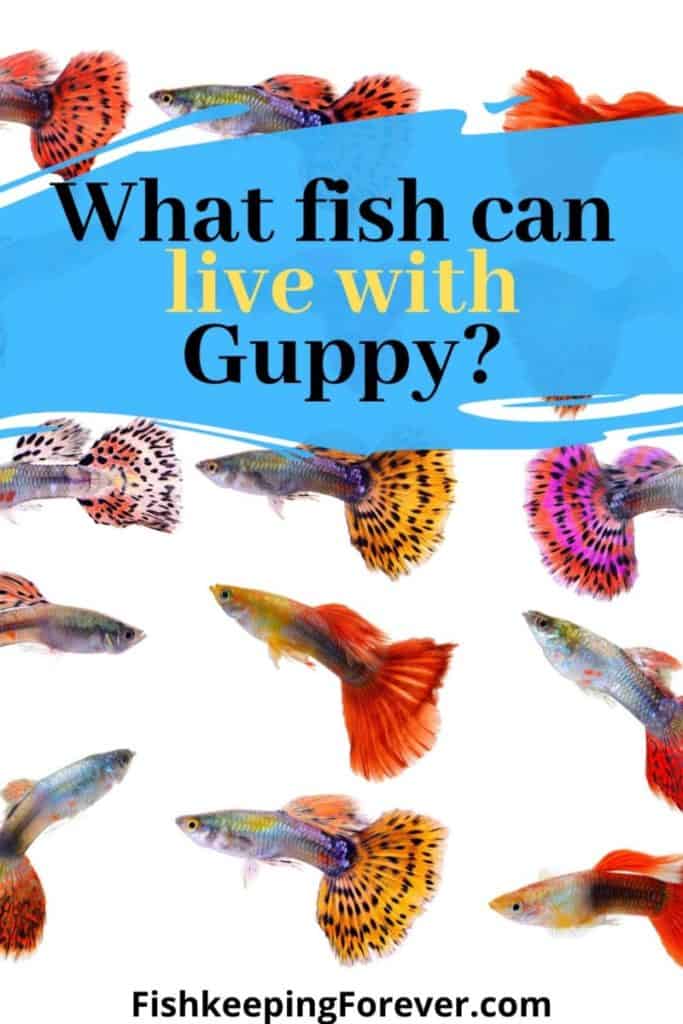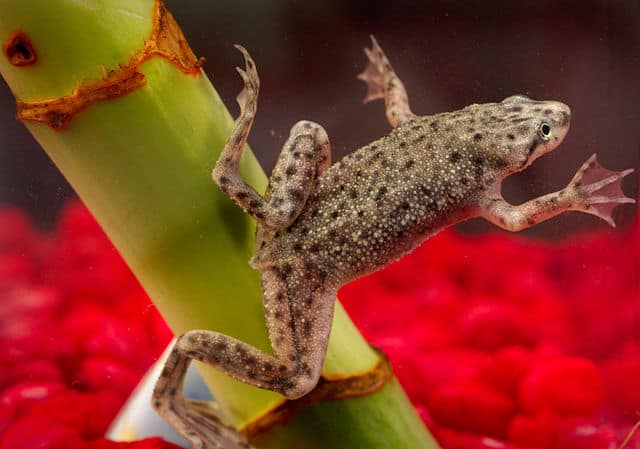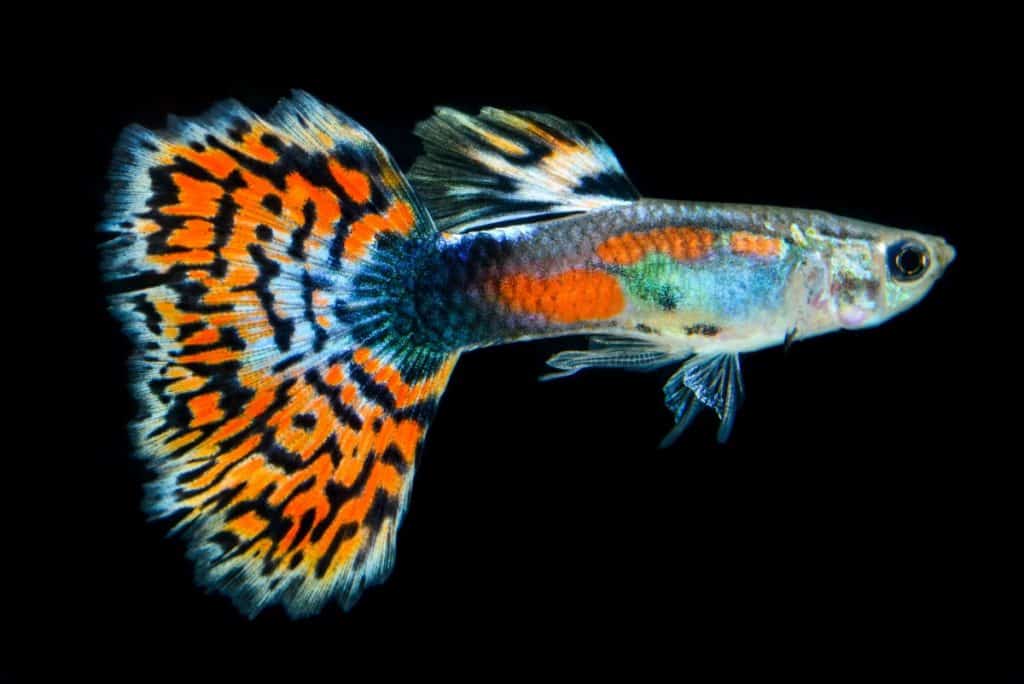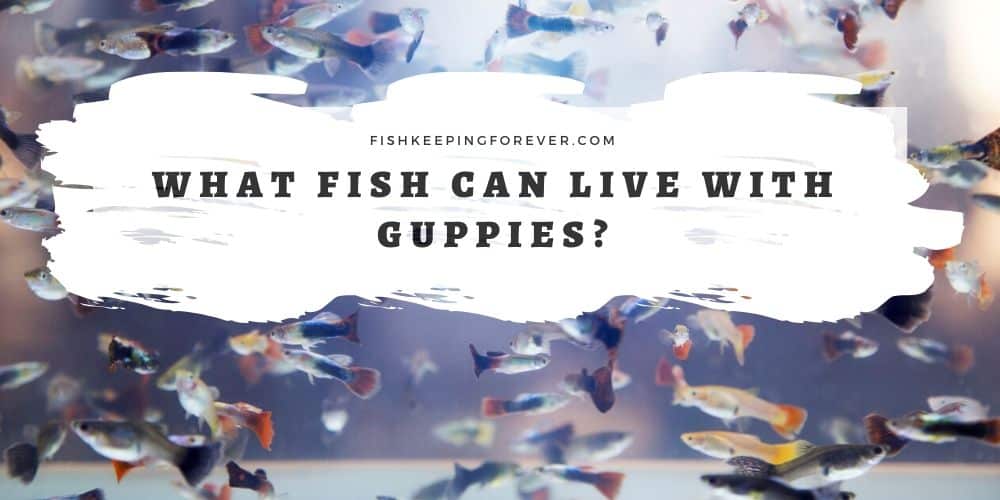For the average fish enthusiast, you may know that not all fish are compatible. When it comes to guppies (the small, colorful fish that are commonly purchased for tanks), they are compatible with a large number of fish species.
Keep in mind that there’s nothing wrong with having a guppy-only aquarium tank. However, some owners may want to see more variety in their tanks.
We take a look at what fish can live with guppies and list 15 species of fish that get along with guppies and make suitable Guppy tank mates.
Learn how to keep them living in peace together.
Table of Contents
15 Suitable Guppy Tank Mates
- Swordtails
- Platies
- Mollies
- Cory Catfish
- Honey Gouramis
- Harlequin Rasboras
- Cardinal Tetra
- Bristlenose Pleco
- Otocinclus Catfish
- Nerite Snails
- Kuhli Loach
- Red Cherry Shrimp
- Crystal Red Shrimp
- Amano Shrimp
- Rasboras
Species to Avoid with Guppies
In addition to species that work well with guppies, some fish are an absolute no and are not suitable guppy tank mates. They may display predatory behavior or aggression towards this type of fish.
In order to be on the safe side, these are the species that should not be kept in the same tank as a guppy and you will not find them on any list of what fish can live with guppies safely:
- Angelfish – Some guides will tell you that they are compatible. Unfortunately, they aren’t. Angelfish will actually nip and harm guppies in most cases.
- Cichlids – These fish have an aggressive nature and are incredibly territorial. They will also be tempted to take a bite out of a trespassing guppy.
- Endler’s Livebearers – These two species actually do get along. In fact, a little too well! If they crossbreed, they will have weaker offspring which leads to health problems.
- Large fish – Although this is not a specific type of fish, it may be problematic to keep guppies in the same tank as larger fish. They may mistake them for food, causing problems down the road.

Other Aquatic Species Compatible with Guppies
Although you may be looking specifically for fish to put in the tank, guppies get along with other species as well. Whilst looking at what fish can live with guppies, you can also consider non-fish species, such as those below.
Adding amphibians and other invertebrates can make a tank for interesting. They can provide additional benefits as helping to clean the tank.
These are a few of the other species that you may want to consider which make suitable guppy tank mates:
- African Dwarf Frogs – These are a fairly compatible tank mate for almost all tropical aquariums. Their name suggests that they are smaller and they work well with smaller fish such as guppies. This is a shy species though so make sure that they have plenty of room to hide. They’ll also work better with at least two due to their social nature.
- Apple Snails – These are easy to care for and generally live well in a common aquarium. Apple snails work well with most species of fish and they can also be used to help clean an aquarium of algae. They should not be kept in a small tank though as this will cause problems with the water quality. Finally, make sure to have a tank cover or they will leave.
- Ghost Shrimp – Shrimp make for great tank mates with guppies. Their scavenger nature helps keep the tank clean. They’re also relatively inexpensive as they are often used as feeders for larger fish. But they can be fun to watch when added to a community aquarium. This species is also accepting of other additions so they work well with a variety of fish.

Guppy Habitat and Tank Conditions
The guppy is native to South America and its warm freshwaters. This means that it’s important to have this condition in the tank as well as suitable guppy tank mates that share this preference. As with any fish tank, the water will need to be cycled properly.
Tank size
Although the guppy itself is a smaller fish, some people make the mistake of thinking that a guppy can live in a small tank as well. Most guppies do well in at least a five-gallon tank although ten gallons or larger is ideal for multiple guppies or multiple species of fish. If unsure of the right aquarium size, it may be best to consult an expert.
Tank conditions
The tank should be set up and regularly tested for both temperature and pH. A heater is almost always required to keep the water temperature between 75-82 degrees.
The heater can be placed at one end of the tank with the thermometer at the other end to ensure that the water is being heated consistently.
Additionally, the pH of the water should be regularly tested. While a guppy can tolerate a wider range of pH than most other fish, the ideal range for them is 7-7.2.
The quickest way to check the pH of your aquarium is with pH aquarium testing strips. They are simple to use and take seconds to get an accurate reading. They are also very inexpensive and available on Amazon here.
Tank décor
The type of tank also can be personalized to the owner’s preferences. The set-up depends on the intentions for keeping the fish. A community aquarium is the most common setup that people use today.
This usually involves setting the tank up with live plants, rocks, and other decorative items. The ideal plants to keep with guppies include Amazon sword plants and hornwort. The type of substrate chosen is based on personal preference.

Guppies will tend to spend their time in either the middle or top section of the tank. If not for ‘show’, many aquarists will have a breeding tank that’s less decorative and more functional.
This type of tank should be kept bare-bottomed in order for easy removal of uneaten food. Floating plants such as java moss can be placed in order to provide fry hiding places.
Regardless of the type chosen, all tanks should be cleaned on a weekly basis and a partial water change.
Read Our: Top 10 Aquarium Kids Ornament Guide Here!
Diet and Nutrition for Guppies
The food that your fish eat will depend on what’s currently available as well as their specific anatomy. The guppy is an omnivore, meaning that they will eat both plants and animals.
In fact, they’re a fairly easy fish to feed as they’re not picky eaters. Anything that may fall into their tank is fair game, such as mosquito larvae.
What type of food?
The main components of their diet should be fish flakes. They need a product that will be high in protein and not any other type of filler. Most fish foods have the ingredients listed.
Read through the label and you’ll notice that the ingredients are listed by weight. The highest quality fish foods will have the protein foods listed first such as other fish, meaty proteins, and shrimp. Any fish foods that have wheat or soy as the first few ingredients should be avoided.
Other food types
This does not mean that fish can’t be fed other types of food. They can also be given vegetables such as lettuce and peas. These should be supplemental and avoid providing too much at any given time.
Just keep in mind that any suitable guppy tank mates you choose, need to share the same feeding requirements.
Help with feeding
In order to help with feeding, fish stores stock cone feeders. These can be used to feed frozen and live foods such as bloodworms. The fish can swim to the cone, which is similar to a plastic mesh container.
They can pull only the food that they want out of the holes, making cleanup easy. In general, fish should only be fed once or twice a day.
Their feeding time should only last a few minutes so you can remove food left after this time.
Feeding a variety of food
Additionally, fish should be fed a variety of food. This actually will lead to nutrient deficiencies which are a serious concern. Most fish owners will alternate between flakes, live/frozen foods, and vegetables.
For example, feeding flakes in the morning and an alternative in the evening is a good way to ensure a balanced diet.
Feeding Fry
For breeding purposes, the fry will need specialized feeding regimens. They have to be fed smaller amounts but also be fed more often. These can be the same foods as adults but crushed or there is specialized fry food readily available.
Be wary of overfeeding
Keep in mind that overfeeding fish is a serious concern. They will suffer from health problems in addition to causing problems with the water quality in the tank.
By following these guidelines, there ideally won’t be any leftover food in the tank. If there is, make sure to remove it promptly so that it doesn’t settle on the floor and rot.

Creating Compatibility
Although creating a community tank with guppies seems challenging, guppies get along with a variety of species. In general, you want to look for fish that have similar temperaments and behaviors as guppies.
Any fish that nibble fins or are overly aggressive, will likely cause stress or damage to guppies, making them unsuitable guppy tank mates. Additionally, choosing fish that have similar diet and water requirements makes care and feeding simpler.

The size of the fish can’t be forgotten as well. Guppies are a smaller size so it’s best to stick with smaller fish for tank mates. Some of the larger fish will become aggressive during feeding time, making it hard to keep them all fed.
When looking for fish that pair well with guppies, these care and additional guidelines will keep you on the right track. In general, guppies pair well with similar types of fish.
Using these strategies will make their care simple and also provide a lively and safe environment. Consider trialing one additional type of fish at a time (from the list above of what fish can live with guppies) for the best results when adding fish to a guppy aquarium.
Final Thoughts: What Fish Can Live With Guppies?
Many people will simply add guppies to any aquarium partly down to the fact that they are inexpensive, easily available and commonly known. But just take your time when adding fish to your aquarium and consider all the implications for your new fish and existing ones.
No one wants to cause harm and stress on any tropical fish ( Well I hope not) but many people do because they simply don’t take the time to ask questions and consider all the factors.
Guppies like any fish or pet for that matter deserve to live a long (4-6 years ) and happy life.
- Comparing Aquarium Gravel To Sand – Which Is Best For Your Tank?
- Marineland Magniflow 360 Canister Filter 360 GPH | Pros and Cons
- Best Aquascaping Tools Every Aquarist Should Use
- Best Aquarium Plant Substrate Review 2022
- Polar Aurora Canister Filter | 2022 Updated Review 525 GPH

I have been working in the tropical fish industry for over 30 years now and I’m still learning. Everyday is a school day in this hobby. In my spare time I play golf very badly!


